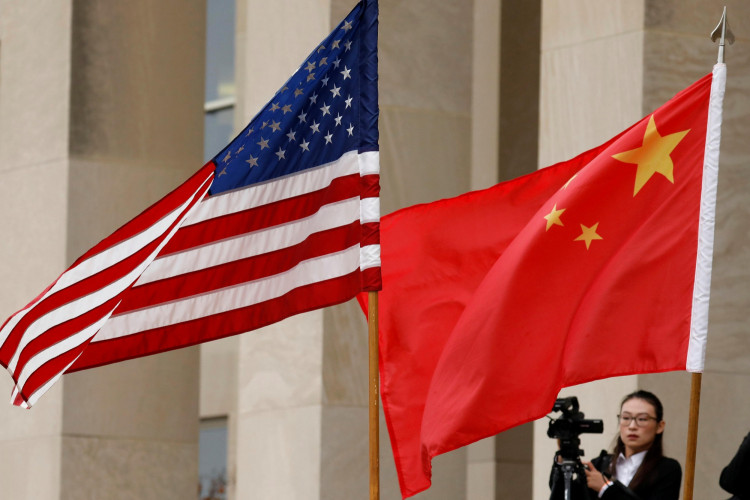Ten Hong Kong government officials, including chief executive Carrie Lam, face further sanctions and won't be permitted to enter the U.S., according to a report released by Congress.
"[These] individuals have undermined freedoms of assembly, speech, press or rule of law," American Secretary of State Mike Pompeo said.
Hong Kong authorities criticized the Hong Kong Autonomy Act report - saying in a statement it is "totally groundless and irresponsible."
The act was passed by Congress on July 14. It gave the State Department 90 days to identify China officials responsible for China's failure to uphold the "One Country, Two Systems" mandate and to flag financial institutions who process their transactions.
"China firmly opposes and strongly condemns the so-called [act] and related sanctions," China Foreign Ministry representative Lijian Zhao said.
The China government is subject to several rounds of American sanctions. The day the act passed, U.S. President Donald Trump issued an executive order which determined that "Hong Kong is no longer sufficiently autonomous to justify differential treatment in relation to the People's Republic of China."
Under the terms of the 1997 China-British joint declaration, Hong Kong was to retain its own system of government until 2047 when it will be assimilated with the Communist mainland.
However, 2020 saw several policies forced on Hong Kong that critics say reduce freedom of speech.
"The Chinese Communist Party has routinely dismantled the autonomy that Beijing promised to the Hong Kong people and the world in a UN-registered treaty," Pompeo said.
Depending on the outcome of the most recent sanctions, further measures against China-affiliated financial institutions will be the next step.
In a sign of what is to come Pompeo called out London-headquartered HSBC for "kowtowing" to communist party demands in late August, accusing the bank of "maintaining accounts for sanctioned individuals...while shutting accounts for those seeking freedom."
Fitch Ratings warned in a September research brief that "U.S. sanctions on China or Hong Kong-based individuals might lead to reputational risk for banks."
If the sanctions are extended to corporations tied to the China state this could increase credit risk in bank loans to these companies.
A Shot Across The Bow
However, the latest report is mostly symbolic - considering that sanctions are already in place against the same Hong Kong officials.
In August, the U.S. Treasury imposed sanctions on 11 individuals for allegedly undermining the Special Administrative Region's autonomy - all of whom appear in the latest report, except for former police chief Stephen Lo.
"We will use our tools and authority to target those undermining [Hong Kong] autonomy," Secretary of the Treasury Steven Mnuchin said at the time.
Affected Hong Kong officials played down the potential effect of the sanctions then. Hong Kong chief executive Carrie Lam said she would "laugh off" the sanctions thanks to her lack of American assets.
Lam's comments annoyed U.S. Democrats who are demanding more stringent punishments be employed. "Instead of talking about holding China accountable it's time Trump actually does," Democratic Senator Chris Van Hollen posted on Twitter this week.
"This new State Department report shows the administration has been too slow in expanding the number of individuals and entities sanctioned under the Hong Kong Autonomy Act."
Pompeo announced this week the new role of U.S. Special Coordinator for Tibetan Issues, which will "lead US efforts to promote dialogue between China and the dalai lama or his representatives."





